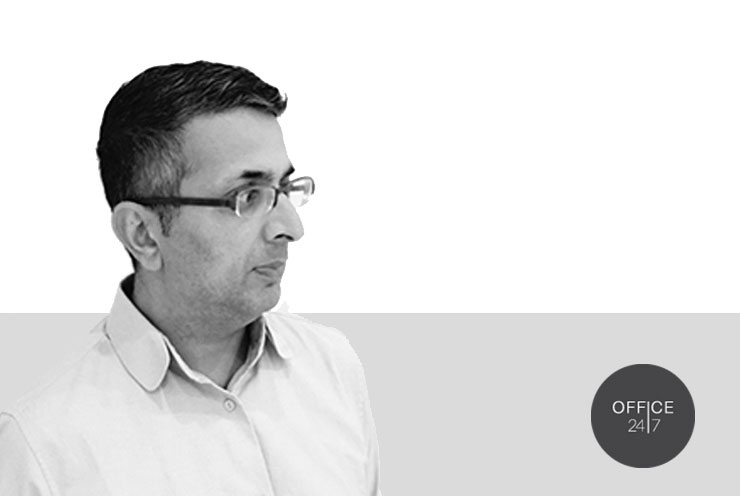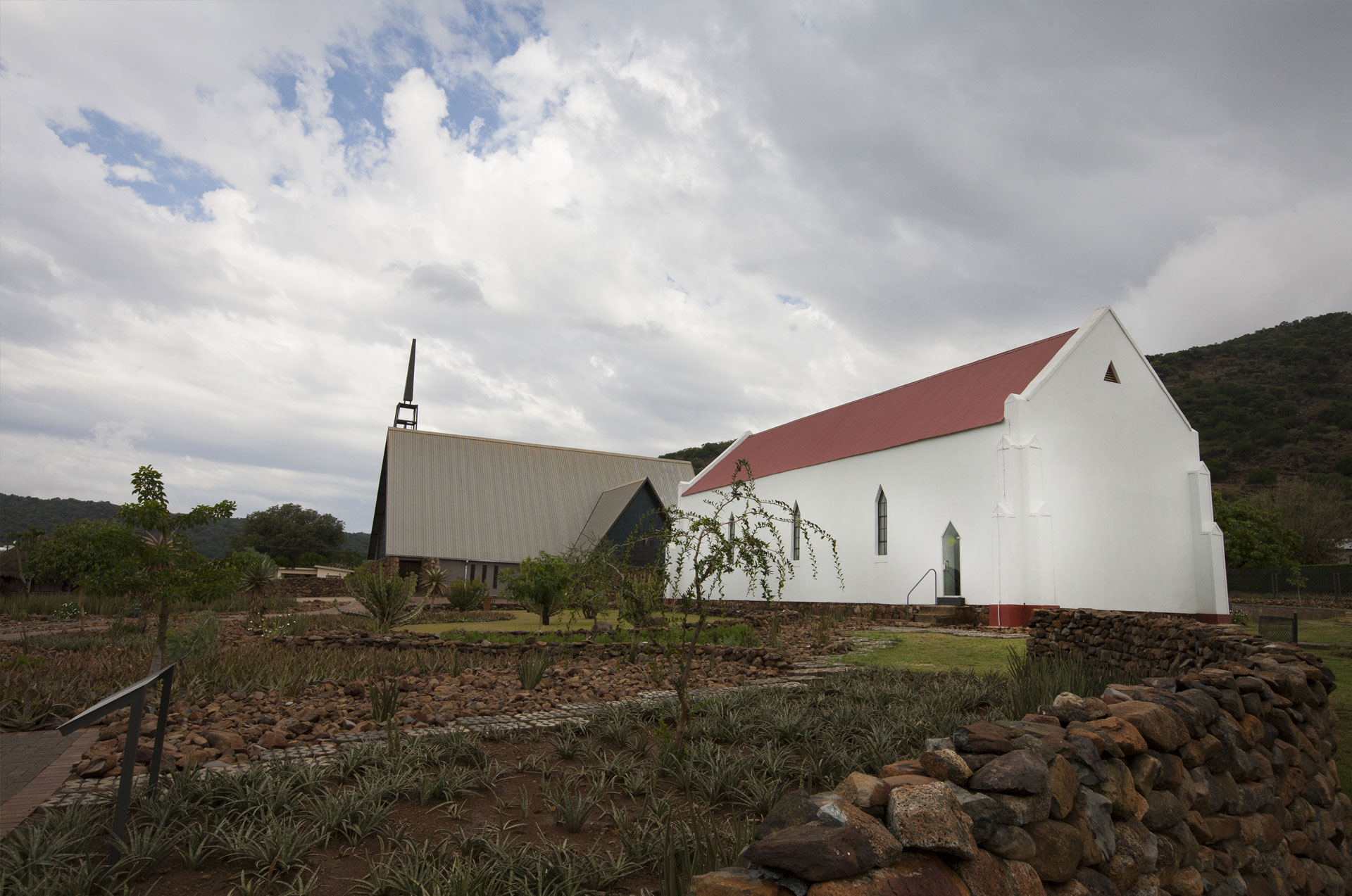Nabeel Essa of Office 24-7 presented the Mphebatho Cultural Museum & Moruleng Cultural Precinct (http://www.mphebathomuseum.org.za/), a place that documents and represents the narrative of the indigenous people of the Pilansberg – The Bakgatla-ba-Kgafela.

#FreshChat 03 – Office 24|7
Dutch Reformed Church, Mphebatho Cultural Museum & Moruleng Cultural Precinct. Photograph by Natasha Laurent 2016.
Here are some moments that we found insightful:
“I can be South African, I can be Christian, I can be Bakgatla.”
“How do we get away from Colonial Urbanism?”
“A Grandmother telling her child a story.”
Q&A
A discussion followed that helped us to piece together thoughts about different approaches for working in the context of history, memory and identity.
I’m particularly intrigued when you spoke about museums in context, because you started to position a post apartheid contemporary museum, by placing it within the realm of a way we memorialise or we capture, edit or censor memory. On one hand, especially in the Moruleng project, you’re very sensitive to the way you present by acknowledging that there are gaps that need to be filled in, but on the other hand you also take a very clear stance you put it into a context. So what is that context? Is it the fact that you left the gaps and the chaos or non-editing of personal history, the layering a stance? What is the stance? Leaving the gaps? Layering the history? [Tanzeem]
“We pose questions – it’s about critical thinking.”
If you had to take that same level of critical thinking, because most of the work you’ve showed us are exhibitions, where you already had the body of work and you had to find a way of curating and presenting it, but if you had to go beyond it and to amplify your role as an architect to create the envelope of the building, then how would you approach it? How would you apply this level of thinking in terms of making a building? [Tanzeem]
Do you think there’s still a place for that kind of (formalistic) museum space making? You’re talking about dissolving the architectural/spatial and it only becoming the content, a museum which relates to what’s being represented rather than space making. Do you think that is how museums should be made? [Althea]
“Are there any spaces that represent us as a post-apartheid society? Can architecture do that?” [Althea]

